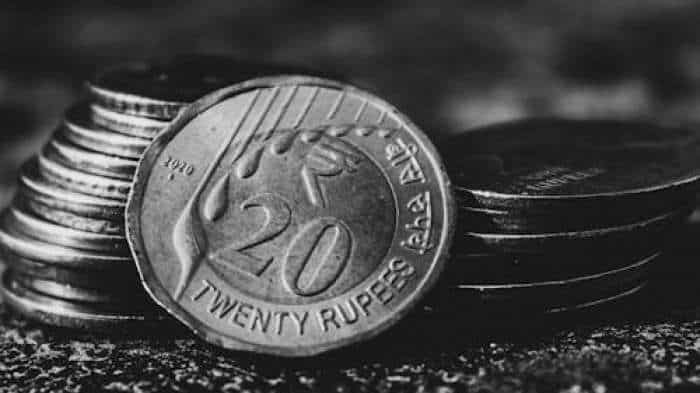Brent crude nears $80: From Airlines, auto to IT, how India will be affected
On Tuesday, Brent crude, the global benchmark, rose 54 cents to $79.76 a barrel by 1221 GMT. Last week, it topped $80 for the first time since November 2014.

There is a significant movement in global crude oil prices since start of 2018, on the back of rising global growth (and hence oil demand), declining inventories amid continued OPEC and Russian production restraint and re-surfacing geopolitical risk. Currently, Brent crude is up by 21% year to date and trading at $80 per barrel. This means Brent crude has nearly doubled from the lows of $40 per barrel which it was 2 years ago. Such consistent rise crude oil is not a good sign for India, as nearly 86% of it’s import depends upon crude.
According to SBI Mutual Fund report, India was one of the leading beneficiaries of crude price fall in 2014-15, with benefits accruing in the form of lower inflation, better fiscal balance, shrinking current account deficit, lower policy rates, stable currency and higher profitability for several sectors in the form of lower raw material cost.
Let’s have a look at how sectors will be impacted by higher crude oil, as per SBI MF.
Oil & Gas sector
Fuel margins, despite being volatile around state election, has risen by 4% annually over past two years. SBI says, “We expect the OMCs to pass on the crude price rise to the consumers in the form of higher prices for the petrol products and maintain their margins. Beyond a certain price level for crude, we expect government to take some tax cuts (either centre or state or both).”
That said, there may be negative sentimental impact intermittently, if there are delays in taking the price hikes or uncertainty around tax decisions by the government.
FMCG
Raw-material costs for quite many fast moving consumer goods (FMCG) companies are directly linked to crude. To add, all companies have outward freight at 3-5% of revenue which again is linked to crude.
As per SBI, over the last decade, FMCG companies have been able to pass on cost inflation to consumers. Incrementally, it may be tougher to do so as the starting levels of margins are the highest ever.
Consumer Durables
Consumer durables companies could be impacted by 1-4% assuming they are unable to fully pass on the cost hikes in crude derived raw-material products (plastics). But the overall impact is likely to be marginal. However, higher crude, copper and aluminium price are likely to hurt companies in a weak demand environment particularly for air-conditioner companies
Industrials
For Industrial companies, there is no material impact to EPS due to a rise in crude oil price (~1-2% in some cases). A derivative of higher crude prices is also a weaker rupee which helps the aforementioned companies in terms of realizations and margin cushion.
On interest rates, there are few companies with sizeable debt where EPS impact could be in the range of 3- 4% for FY19/FY20.
Financial Services
Rise in inflation and interest rates are not desirable for the banking system owing to its adverse impact on credit demand and treasury income
Cement
Rise in crude oil affects the cement companies via the channel of rising diesel cost which is used for mining operations of limestone and the rise in freight charges. The freight comprises 25% of the sales and the overall raw material (including the mining) cost is estimated at 10% of the sales.
Owing to these factors, estimate a marginally negative impact on the cement companies.
Auto
Rise in crude prices could feed into higher prices for products such as rubber and plastics. In general the auto companies have the pricing power and hence should be able to pass on the higher input cost to the consumers.
Airlines
Airline companies could be adversely affected by crude price rise. A 10% increase in crude price results in 20-25% decline in EPS, assuming no change in ticket prices (fuel cost accounts for ~35% of the operating revenues of airlines).
IT
There is no first order impact of fall in crude price. While travel expense (air fare) does form 2.5-3% of sales, the pass-through of fall in crude to actual air fare is not clear. Weaker rupee helps margins
Telecom
For telecom operators, impact of crude oil is felt through the diesel that is used to run DG sets at telecom towers. Broadly, 1% increase in diesel price will have a 0.1% impact on current EBITDA.
Chemicals
Chemicals companies in general, have benefitted from fall in crude oil price in FY16-18, as indicated by the sharp expansion in the gross margins in this period for most of them. A reversal in crude oil price, if sustained, may curtail gross margins for most of the chemical companies in the coming 18-24 months.
On Tuesday, brent crude, the global benchmark, rose 54 cents to $79.76 a barrel by 1221 GMT. Last week, it topped $80 for the first time since November 2014.
Get Latest Business News, Stock Market Updates and Videos; Check your tax outgo through Income Tax Calculator and save money through our Personal Finance coverage. Check Business Breaking News Live on Zee Business Twitter and Facebook. Subscribe on YouTube.
RECOMMENDED STORIES

Power of Compounding: How can you create Rs 5 crore, 6 crore, 7 crore corpuses if your monthly salary is Rs 20,000?

after bumper 2024 rs 2 lakh crore worth ipos expected in 2025 primary market nsdl avanse financial ecom express sebi approval

Latest SBI Senior Citizen FD Rates: How much senior citizens can get on investments of Rs 5,55,555, Rs 7,77,777, and Rs 9,99,999 in Amrit Vrishti, 1-, 3-, and 5-year FDs

Top 7 ETFs With Highest Returns in 1 Year: No. 1 ETF has turned Rs 8,78,787 investment into Rs 13,95,091; know how others have fared

Rs 1,000 Monthly SIP for 40 Years vs Rs 10,000 Monthly SIP for 20 Years: Which can give you higher corpus in long term? Calculations inside
07:12 PM IST








 Rupee holds at 83.53 amid stable crude oil prices and stock gains
Rupee holds at 83.53 amid stable crude oil prices and stock gains Currency Market News: Rupee opens on a flat note at 83.50 vs dollar
Currency Market News: Rupee opens on a flat note at 83.50 vs dollar Currency Market News: Rupee trades on a flat note at 83.50 vs dollar in early session
Currency Market News: Rupee trades on a flat note at 83.50 vs dollar in early session Rupee falls 4 paise to close at 83.52 against US dollar
Rupee falls 4 paise to close at 83.52 against US dollar Rupee declines by 6 paise to close at 83.50 against US dollar
Rupee declines by 6 paise to close at 83.50 against US dollar